Collaboration among higher education institutions (HEIs) is one of the goals of the Global Networks, such as the Global Innovation Network for Teaching and Learning (GINTL). Last year, the Africa Day event was jointly organised by the University of Eastern Finland, the University of Turku, the University of Helsinki, and the University of Jyväskylä. This year, the University of Jyväskylä’s Coalition of African Networks and the University of Helsinki as part of GINTL Africa co-organised the 2024 Africa Day event in Jyväskylä on 24 May. We celebrated the day under the theme “Re-thinking African education systems for the 21st century: Building resilient education systems for increased access to inclusive, lifelong, quality, and relevant learning in Africa.”
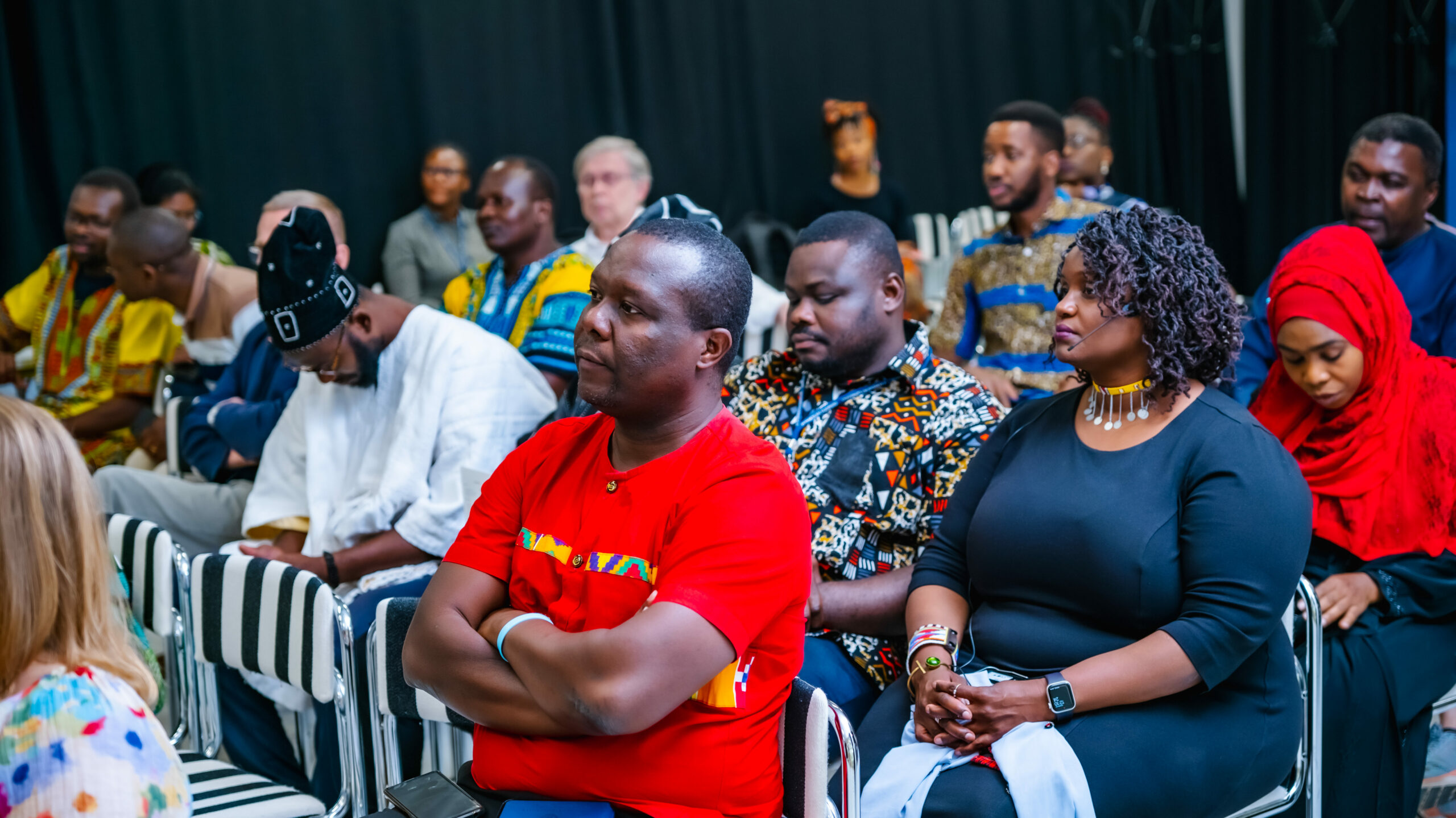
The event was officially opened by Prof. Mika Lähteenmäki, Dean of the Faculty of Humanities and Social Sciences at the University of Jyväskylä, and Adjunct Professor Sai Väyrynen, Director of the GINTL at the University of Helsinki. Mika Lähteenmäki appreciated the Ministry for Education and Culture for supporting the Africa networks through strategic funding. He highlighted the successful initiation of new publications with African scholars, new collaborations in student and teacher exchange, the design of collaborative courses with African universities, and the emergence of new research proposals. Sai Väyrynen emphasised the significance of collaboration in education with Africa, noting that the theme resonated well with GINTL’s work and that meaningful Africa-Finland collaborations have resulted from several of the Global Pilots.
During the event, we reflected on Africa’s approaches to education through the perspectives of individuals actively engaged with education-related topics in both Africa and Finland with two keynote speeches, two panel discussions and a poster session.
Highlights from the keynotes and panel discussions
The two keynotes featured Dr. Bridgit Muasa, who is a visiting researcher from the University of Nairobi at the University of Helsinki through the University of Helsinki Early career mobility programme. The second speaker was Dr. Päivi Hasu, who is conducting a study about research on African teacher education for the Finnish National Agency for Education (EDUFI). Both speakers addressed the theme of the Africa Day through the lens of their work.
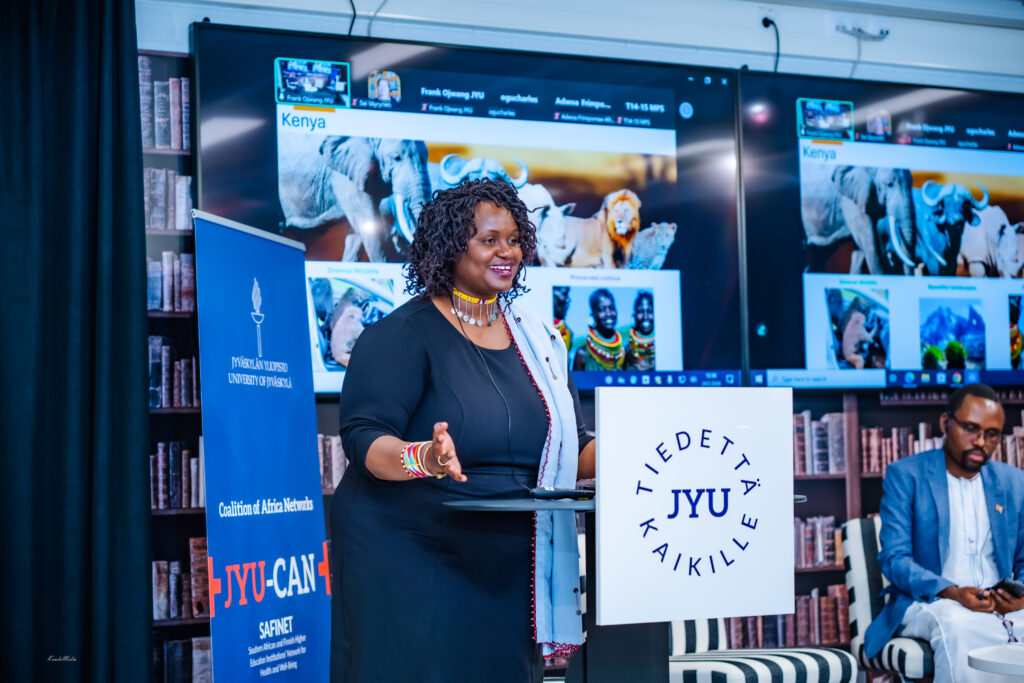
Dr. Muasa focused on the role of international exchanges in fostering resilience among African early career researchers. She emphasised how these programmes provide access to up-to-date research, infrastructure, and publications, support skills development, and enhance networking opportunities, which are crucial for Africa’s development.
However, these mobility programmes are often funded by Northern countries with challenges in terms of sustainability. This raises the question of whether such mobility is a priority for African governments given the significant challenges their education systems face.
Bridgit Muasa identified these challenges as economic (limited state funding, high tuition fees, scarce research funding), infrastructural (insufficient facilities and technology, limited access to scientific materials), issues of access and inclusivity (geographic, gender, and disability inequalities), and global positioning (low competitive advantage, talent acquisition, and retention). These issues strain resources, complicating investments in mobility programs that could benefit more African scholars.
Image: Dr Bridgit Muasa (photo by Kanda Media)
Päivi Hasu’s keynote highlighted the importance of innovative pedagogies for sustainable lifelong learning in Africa, based on research on teacher training around three themes:
Lifelong learning, 21st century skills, and sustainability: This theme explored how African countries integrate lifelong learning policies, technologies, and project-based learning to develop 21st-century skills. It emphasised adaptable frameworks and strategic practices to address socio-economic and environmental challenges, supported by ICT for sustainable education.
Indigenous knowledge and sustainability: Research in this theme focused on incorporating indigenous knowledge, cultural values, and inclusivity into education. It addresses decoloniality by embracing African cultural narratives and challenging historical biases for local relevance. It also integrates indigenous perspectives for environmental stewardship and sustainable community practices.
Technology, innovation, and research-driven educational practices: With this theme, Hasu highlighted the use of digital tools and mobile learning to enhance access in remote areas. The theme promotes learner-centred methods, culturally relevant curricula, and professional development to empower teachers and foster active learning. It also emphasises evidence-based policies, collaborative research, and data use to anticipate educational needs.
The event had two panel discussions. The first panel focused on the dynamics of 21st-century education systems in Finland and Africa, covering basic education, TVET, HEIs, and alignment with SDG4. Panellists Prof. Sirpa Eskelä-Haapanen, Ms. Irmeli Maunonen-Eskelinen, Dr. Karembe Ahimbisibwe, Dr. Elizabeth Eta, and Dr. Judith Kahamba, discussed significant transformations in access, quality, teacher training, infrastructure, education-labour market transitions, and perceptions, especially regarding Technical and Vocational Education and Training (TVET). Despite the transformations, challenges remain in preparing resilient students for the 21st century.
Image: Dr. Päivi Hasu (photo by Kanda Media)
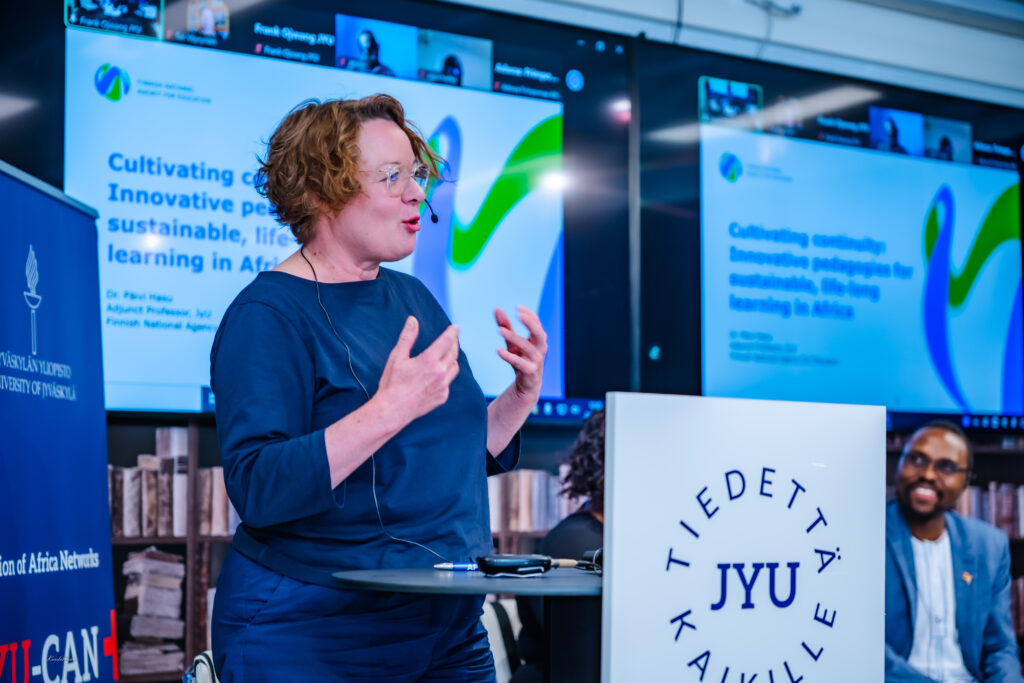
The discussion also addressed ways to decolonise teaching, research and projects at Finnish HEIs. The panelists highlighted the need of better integrating the (international) African students into the Finnish labour market, which requires the Finnish labour market adjusting and warming up to new talents. Current language policies in Finland requiring proof of English proficiency from African countries despite English being widely used as the language of instruction from early-childhood education to higher education in most African countries due to colonial history, needs to be looked into. Effective Finland-Africa collaboration should promote co-creation, co-learning, and integration of local knowledges and experts, considering contextual conditions and avoiding past mistakes from other systems.
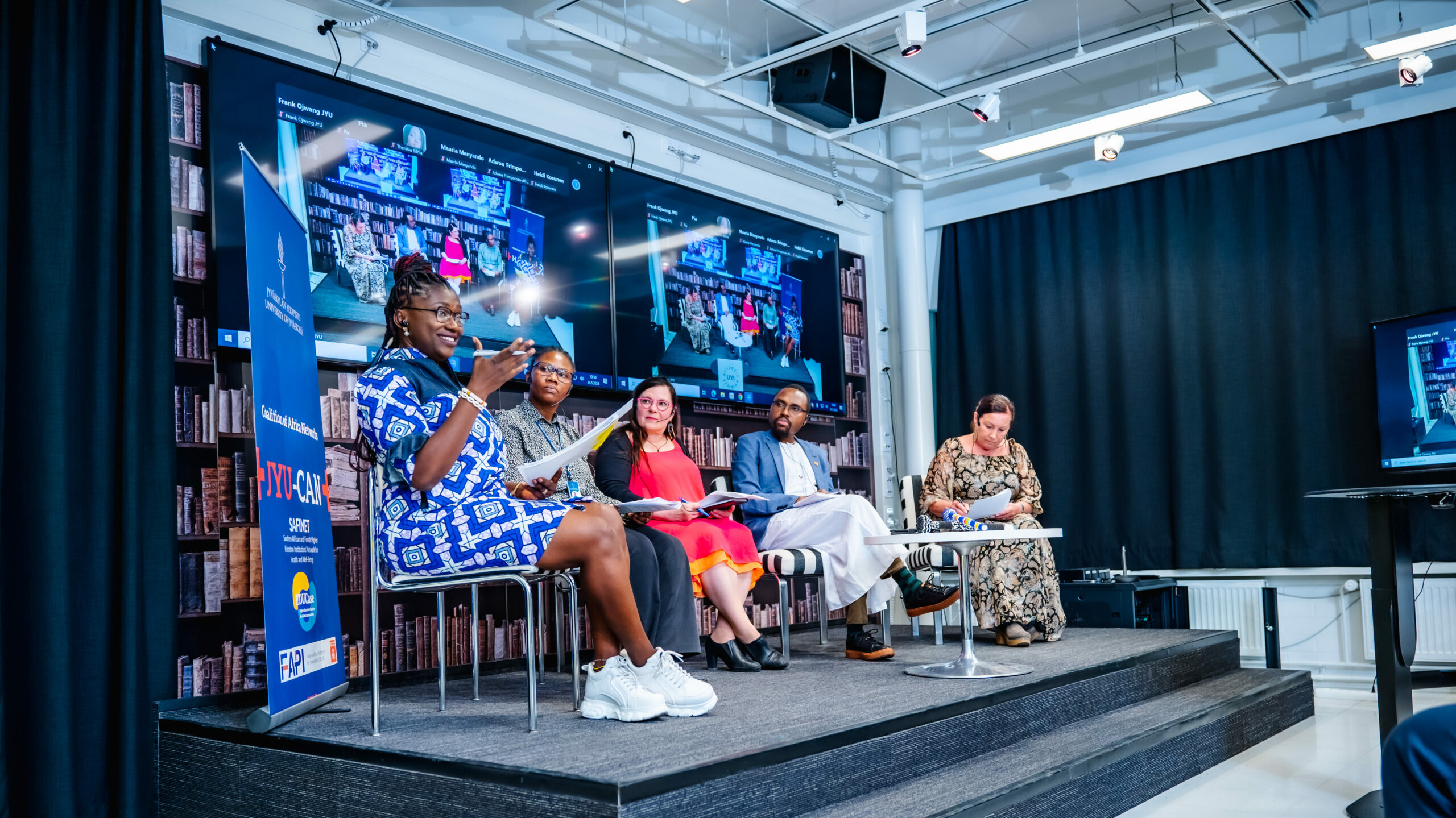
The second panel included NGO practitioners Dr. Pascal Doh of Diana ry and Pauliina Kemppainen of Finn Church Aid, who discussed interventions linking learning to earning and addressing educational challenges with innovative solutions for increased access to inclusive, lifelong, quality, and relevant learning in Africa.
Both organisations, Diana ry and Finn Church Aid, align their projects with the African Union agenda, specific country policies, and Sustainable Development Goals (SDGs), emphasising local relevance, ownership, and sustainability. The speakers highlighted the need to innovate in response to global crises like COVID-19, the learning crisis, and refugee situations. Despite challenges such as funding, perceptions of NGO involvement in education, and competition with other education providers, collaboration with various stakeholders is crucial for greater impact, cost-sharing, information exchange, and diverse perspectives in setting agendas, identifying problems, and creating solutions that meet local needs.
The Africa Day theme: A topic of intense debate
The theme for Africa Day 2024, chosen by the African Union, is “Educate an African fit for the 21st Century: Building resilient education systems for increased access to inclusive, lifelong, quality, and relevant learning in Africa.” This theme sparked intense debate among the African diaspora in Finland, particularly the phrase “Educate an African fit for the 21st Century.” Many found it problematic, calling it “disturbing”, “colonial,” and “disrespectful,” as it seemed to position educators as Westerners and implied a need to “fix” Africans.
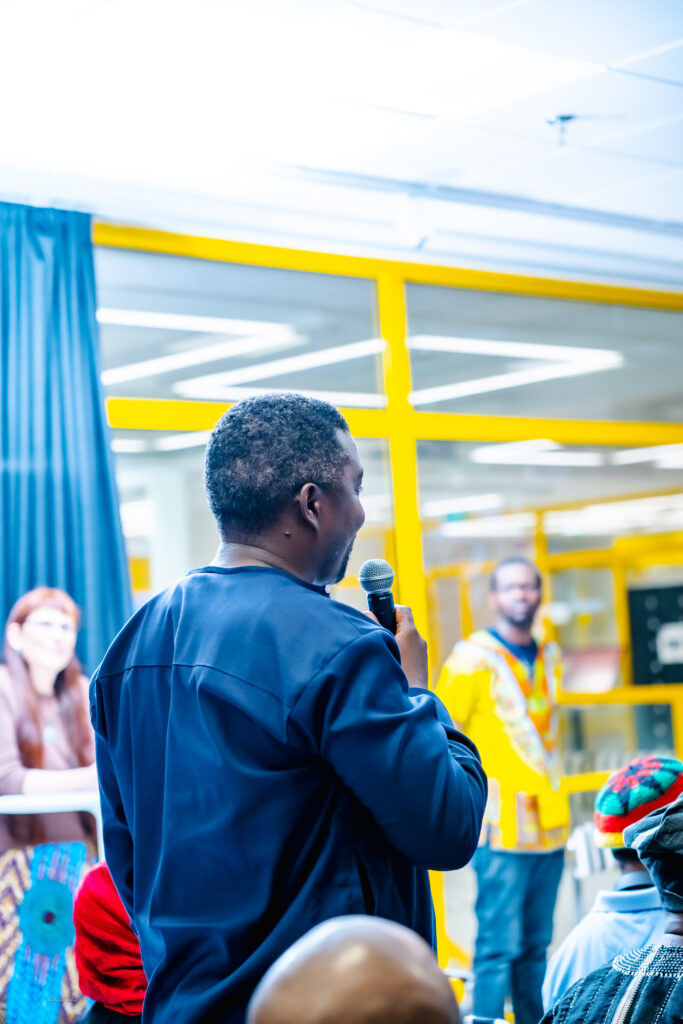
The term “fit” prompted heated discussions that felt it represented a colonial attitude and perception about Africans in relation to knowledge, skills and expertise. An African diaspora member in one of the forums was taken aback by what he felt was the “audacity” to think, and even write the theme down in its format. “It is so inappropriate and demeaning!” he added.
One African diaspora member in a forum said, “Africans are not a problem or individuals that need fixing. Our education systems are what need updating.” Another noted that the term “knowledge transfer” means “Europeans educating Africans” but has been replaced by “knowledge sharing.” This change reflects efforts to decolonise education, break Western knowledge domination, and highlight mutual learning, respect between cultures, and the value of indigenous knowledge systems.
Image: A participant in during the discussion (photo by Kanda Media)
In a rare twist, another member of the African diaspora felt the theme was acceptable: “I do not find it demeaning. The phrase ‘educate an African to be fit for the 21st century’ calls attention to the type of education needed—suggesting a shift in focus and forms of education. Education in the 21st century is no longer dominated by Western thoughts, knowledge, or history. However, in Africa, Western knowledge still dominates, especially in educational systems and content. While education may be taken for granted in the diaspora, UNESCO statistics show that Sub-Saharan Africa has the highest rates of education exclusion, with 20% of 6 to 11-year-olds out of school, 33% of 12 to 14-year-olds out of school, and 60% of 15 to 17-year-olds not in school.”
The African diaspora in Finland suggested presenting their concerns to the African Union for clarification. By the time of the event, no response had been received. It will be interesting to see how the theme is perceived in Africa compared to the diaspora’s reaction in Finland.
The organising committee for the Africa Day event, having forecasted the nature of politics that the theme could draw, reworded the theme to “Re-thinking African Education Systems for the 21st Century.”
Africa Day in Finland: for who and by whom
Every year, a recurring question arises, especially outside Africa, including in Finland: should we celebrate Africa Day, and if so, how? This question seems to be fading as more organisations, including HEIs and NGOs, now regularly organise activities to commemorate the day. These activities often include cultural and culinary celebrations as well as educational presentations, discussions, and reflections based on the theme decided by the African Union for the year.
As discussed above, the theme for 2024 is on education. Our activities involved keynote speeches, panel discussions, and poster sessions highlighting and reflecting on approaches to education in Africa and Finland. These sessions featured individuals from diverse organisations actively engaged with education-related topics in both Africa and Finland. However, amidst these celebrations, a critical question around representation arises that requires collective reflection: who should organise and celebrate Africa Day outside of Africa, such as in Finland?
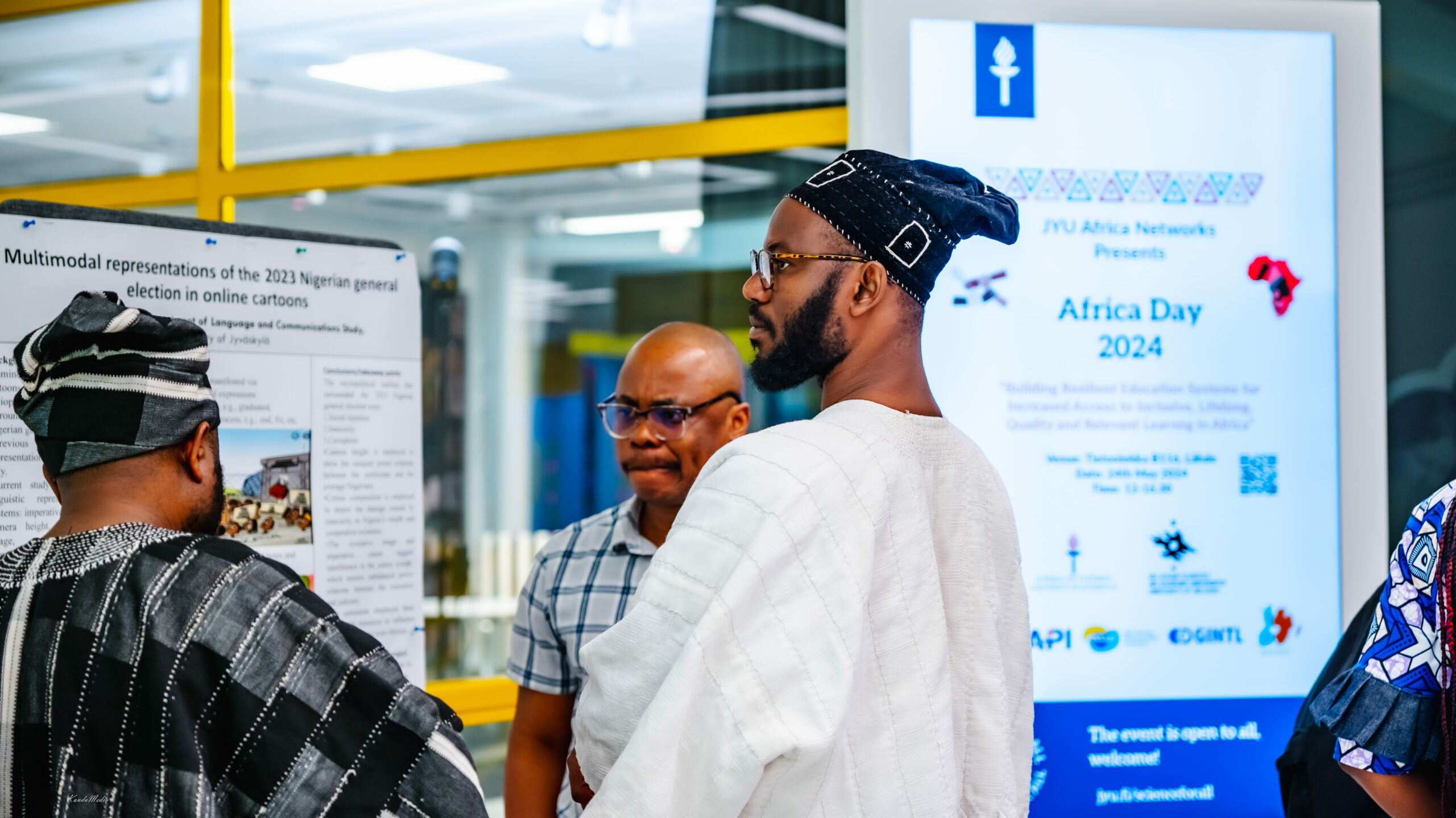
Africa is undeniably a continent of interest to Finland, as evidenced by the Finland-Africa strategy, university-level Africa programmes, and the fact that four out of the eight Ministry of Education and Culture’s funded Global Networks focus on Africa. Funding instruments such the Higher Education Institutional Cooperation Instrument (HEI ICI) and the Higher Education Partnership (HEP) programme support capacity-building projects in the Global South, including Africa. While this article is not intended to generalise, the turnout at this joint event suggests that the African diaspora feels a higher sense of belonging on this day probably because the Africa Day provides an opportunity for them to connect with their roots and celebrate their heritage. Notably, this is one day when Africans often take up or are given leadership positions in university-related planning and organisation, despite their usual underrepresentation in such leadership roles within university international affairs departments, teaching and research, and capacity-building projects related to Africa. Participation by non-Africans was minimal.
Celebrating Africa’s unity, reflecting on its challenges, and recognising our shared contributions to its development—as well as Africa’s influence on global issues—necessitates the involvement of everyone. This encompasses organisations engaged with Africa-related matters and those who value and support Africa’s role in global development.
Key takeaways
Africa Day as a platform for African diaspora advocacy
The Africa Day event is one of the open events that brings together scholars and experts in different themes and fields. Engaging with the scholars and experts can inspire new conversations and directions in research, and this can inspire policy conversations about everyday issues that African migrants face.
Invitation to collective celebration and reflection
Africa Day is a time for collective celebration and reflection, not only by Africans but by the global community, fostering unity and understanding through cross-cultural dialogue of burning issues.
Efforts to make our collective work visible
Significant research, projects, and collaborative efforts to improve access, quality and relevance in Africa exist. How do we make them visible and promote cross-institutional collaboration for greater impact?
Align educational projects and programmes with local context’s needs and priorities
We are reminded that local context’s needs should be our starting point in our combined efforts to improve education access, quality, and relevance in Africa. Utilising local expertise is key to ensure ownership, sustainability, and contextual relevance.













